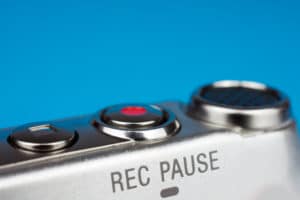The case may involve a controversial topic, but the crime is relatively common
There are few issues in the United States that divide Americans like abortion. Many of us have very strong issues on the topic, whether for or against it. This blog isn’t about abortion — but about the criminal charges brought against two people who attempted to uncover what they believed was criminal activity at a conference for abortion providers.
In 2014 and 2015, David Daleiden and Sandra Merritt posed as employees of the fake company BioMax a “tissue procurement company.” Using pseudonyms, they claimed that they needed fetal tissue for their work, and went to the National Abortion Federation’s annual meetings in San Francisco, Los Angeles, and El Dorado. Once they were there, the pair wore hidden cameras to secretly record conversations with conference attendees.
Importantly, security is tight at these meetings. All attendees sign a confidentiality agreement, and attendees’ identities are protected (which is not surprising given that abortion providers are often targets for harassment and even violence). Security guards are posted around the meeting rooms. Attendees must wear badges during the meetings, and take them off outside of the conference space. All attendees are asked to be careful to not leave their badges or conference materials around their hotel rooms. Recording is strictly prohibited at these meetings. All of these rules were enacted to protect the safety and security of the meetings and attendees.
Despite these rules, Daleiden and Merritt engaged conference attendees in conversations about obtaining fetal tissue. They then published videos of these conversations as an exposé into the abortion field. As a result, California then charged each of them with 15 counts of felony invasion of privacy.
According to a criminal lawyer Los Angeles, CA, invasion of privacy is a form of eavesdropping. Under this law, “Every person who, intentionally and without the consent of all parties to a confidential communication, by means of any electronic amplifying or recording device, eavesdrops upon or records the confidential communication, whether the communication is carried on among the parties in the presence of one another or by means of a telegraph, telephone, or other device, except a radio, shall be punished by a fine not exceeding two thousand five hundred dollars ($2,500), or imprisonment in the county jail not exceeding one year, or in the state prison, or by both that fine and imprisonment.”
There are four key elements of an eavesdropping crime in California:
- It must be intentional;
- It must take place without the consent of one party to the conversation;
- The conversation must be confidential; and
- It must involve the use of an amplifying or recording device.
Invasion of privacy/eavesdropping is a wobbler offense. This means that it can be charged as either a misdemeanor or a felony crime, depending on the facts of the case and the individual’s criminal history. As a felony, it is punishable by up to 3 years in state prison and/or a fine of $2,500. In this case, both Daleiden and Merritt have been charged with 15 separate counts of felony eavesdropping.
It is important to understand that while you may have the capability to record a conversation using modern technology, California law generally prohibits doing so without the consent of all parties to the conversation. According to a criminal lawyer Los Angeles, CA, if you record a private conversation without informing the other person that you are doing so, you could be charged with a crime.
If you have been charged with a criminal offense in California, you will need a highly skilled attorney to represent you. At the Chambers Law Firm, we have experience defending clients across a range of charges — including those related to invasion of privacy. To learn more or to schedule a free initial consultation with a criminal lawyer Los Angeles, CA, contact us today at 714-760-4088 or dchambers@clfca.com.





